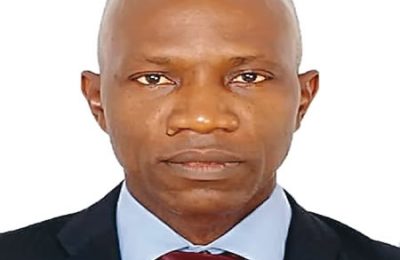To say all is not presently well with domestic air transport in the country may not be an attempt to scare air travellers away.
Key players across the aviation sector need not be told that domestic airlines are standing on one leg of survival as they are being confronted with myriad of challenges ranging from scarcity of funds, devaluation of naira, inaccessibility to forex, expensive aviation fuel, multiple taxation, absence of maintenance facilities, otherwise known as MRO, unfriendly business environment, unpopular policies of government, among many others.
All these challenges have greatly contributed the unimpressive performance of airlines.

The aftermath of this crisis is responsible for why all the domestic carriers are struggling for survival with majority of them being unable to meet up with their flight schedules.
Out of the over 10 domestic airlines operating in the country, only two are managing to survive while others are performing below the standard as witnessed in their ability to provide their best to the flying public.
Another major reason attributed to the poor state of domestic airlines is the drastic depletion of the aircraft in their fleet with majority of the airlines left with only two aircraft in their fleet as against the six required by the Nigeria Civil Aviation Authority (NCAA).
According to investigations, even some of the airlines that have two airplanes are at times left with one whenever one suffers and snag, thus putting passengers into unnecessary pressure as such crisis have been traced to why it has become regular to see passengers being stranded.

In view of the many negative factors highlighted above, the fleet size of the domestic carriers all put together has suffered over 50 percent depletion which has drastically forced them to either prune down their capacity or suspend flights to some routes.
The hardships are why some aircraft are either grounded across the airports or flown out for maintenance cannot be brought back due to the high rate of dollar.
Amidst the scary situation, passengers are at the receiving end as the few surviving airlines do not have the required capacity to fly the numerous passengers who, due to the insecurity ravaging road transportation, have found alternative in air transportation despite the skyrocketing fares.
Most of the airlines are operating under very tight conditions as they try to meet up with their reduced schedules which often lead to chaotic situation between their workers and passengers.
A major contributory factor to the unfortunate development is the suspension of Dana Air by the Minister of Aviation and Aerospace Development, Festus Keyamo, in response to the incident involving an MD 82 aircraft belonging to the airline, which skidded off the Lagos airport domestic runway during a heavy downpour. The suspension of the airline for about four months has contributed to the crisis.
While relevant aviation authorities, particularly the NCAA, may be aware of the precarious predicaments of domestic airlines, the level of its commitment to intervene in ensuring the challenges do not swallow them up appears minimal.
Most of the identified causes of the critical situation, which have been hindering the progress of the local carriers for a long period of time, but looks insurmountable to the government include the multiple taxation, expensive price of jet A1 and unfriendly policies.
Agreed that the challenges facing the airlines are not peculiar to Nigeria, but what is peculiar is the lackadaisical attitude of the government towards reviewing the problems until it aggravated to this level.
If governments of other countries could still support their indigenous airlines to weather the storm by making the environment more convenient for them to fly, what stops the Nigerian government from playing its own part such as pruning down the multiple taxations, encouraging the establishment of maintenance facilities or even supporting similar facilities like the one in Akwa Ibom, seven Star hangar already in existence or making it easy for the airlines to access forex since over 80 percent of airline business are foreign currencies-based.
The seeming silence of the government towards the plights of domestic carries is like sitting on a keg of gunpowder which, when it explodes, may not only bring an end to domestic air transport, but give the foreign carriers a red carpet invitation to take over air transport in the country.
Should this happen, it would have sent a very wrong signal to the few private investors who still have interest in investing in Nigeria as they may be forced to relocate such businesses to neighbouring countries as it is already happening.
Read Also: PTD-NUPENG elects new national officers







